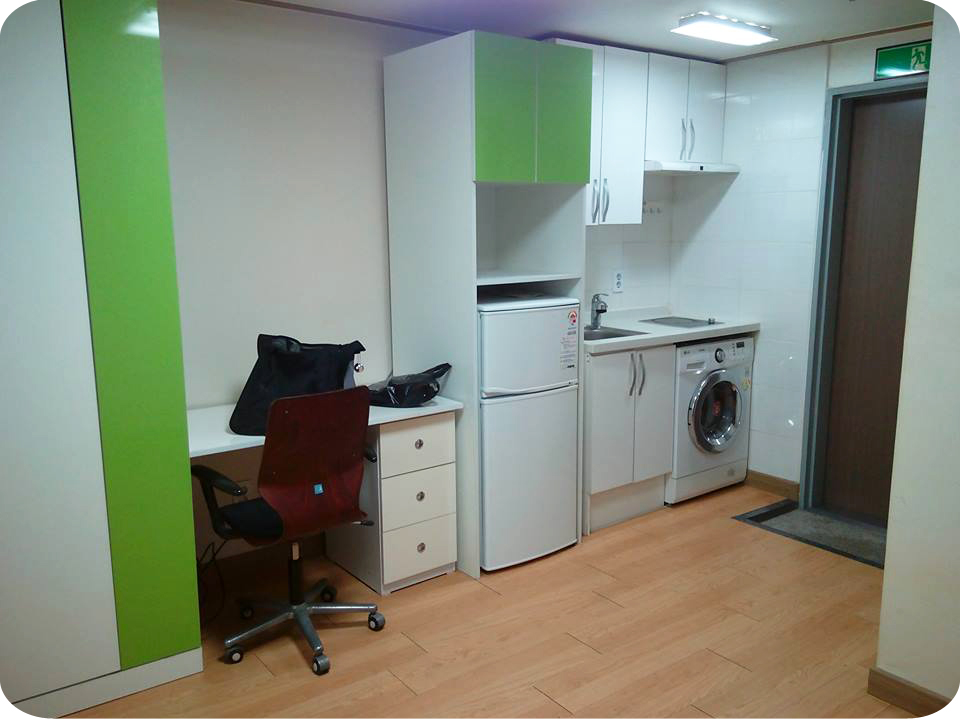If you’re planning on coming to Korea for a year or more, either for work or studying, I’m sure you might consider renting an apartment in the Korean city of your choice. In this article, I’ll be writing about my personal experience as well as sharing a few tips that might be helpful for you.
First off, getting an apartment in Korea is fairly easy if you meet two conditions:
1.You need to have some savings
2.You need to speak a decent amount of Korean or have a Korean friend helping you out
While looking for the perfect place to live, you will most likely end up in a real-estate agency, so the second condition is pretty obvious. Most agents don’t speak English (there might be some, but I heard they charge you more) and communication is quite important when you’re trying to find the right apartment. When I came to Korea, I knew some basic Korean which helped me more than I thought it would. I was able to tell my broker exactly what I wanted, yet I was also very lucky to encounter such a patient agent who, due to not being able to communicate in English very well, took out his dictionary to explain everything to me, even all the details of my contract.
Don’t go to an agency right away though, but inform yourself about your options first. In Korea, there’s two main “renting systems”, the Jeonse (전세) and the Wolse system (월세). Jeonse involves giving a large sum of money to the landlord and not pay rent monthly. The landlord actually invests this money and keeps the interests he earns and the money is usually given back to the tenant when he/she moves out. Wolse is the typical method where you pay your rent every month, but you most definitely won’t be able to avoid paying a large key money here as well. Even if the deposit is by far not as high as a Jeonse deposit, for a small apartment, a typical 보증금(bojeunggeum – deposit) usually ranges around 5,000,000 – 15,000,000 won and that’s still a lot of money, so you might want to save up before coming to Korea.
Regardless of the system, the so-called “building fees” (관리비- gwallibi) are usually paid separately. They normally cost about 30,000-80,000 won and sometimes include utilities such as water, electricity or internet, depending on the price. If you’re a student like me, I suggest you get an apartment where Internet is included in the gwallibi since I heard that as a student, getting an Internet contract yourself is no joke.
And, of course, you won’t get around paying broker fees as well. I’m actually not sure how they calculate those fees, but in my case, they cost around 250,000 won. You will need to pay them on the day you sign your contract, so make sure to bring enough money that day (you might also be able to transfer them to the agency’s bank account).
In order to compare prices, I actually regularly browsed through Zigbang (or Dabang), where you can see which area has the cheapest apartments, where to find the real-estate agency with the best deals etc. This is how I found out about the one I went to and as I said before, I was very pleased with their service. There’s also craigslist, but options are much more limited and more expensive.
Most contracts last for 1 year+, so apartments are an accommodation option only for those planning on staying quite some time. If you’re looking for a short-term or cheaper accommodation, you should check out this article 🙂 .
I hope that this blog post was somewhat helpful! Good luck with finding the apartment of your dreams 😉
Till next time,
Julie

